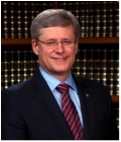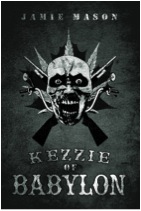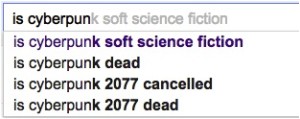 Everyone always wants to know the writer’s writing origins, when for many of us we can’t recall the first time we scratched out a story. Was it a moment of inspiration, they want to know, a story we’d run across that needed our personal improvement? Or maybe we had somehow leaped over childhood development itself and landed in the middle of our search for identity only to discover that damn it, we were writers.
Everyone always wants to know the writer’s writing origins, when for many of us we can’t recall the first time we scratched out a story. Was it a moment of inspiration, they want to know, a story we’d run across that needed our personal improvement? Or maybe we had somehow leaped over childhood development itself and landed in the middle of our search for identity only to discover that damn it, we were writers.
I don’t remember when I thought of myself as a writer, even if I know I bundled up in the front room of my parents house because it was cold enough to see my breath, and I banged away on a towering Royal typewriter, feeling every carriage return as small progress. But my writing genesis is far less interesting to me than its trajectory. I had no idea, making up tales about natural disasters and families and sea monsters, that I’d come to have certain inalienable opinions about my work thirty-plus years later. I write with purpose beyond that of simply selling my work””which don’t get me wrong, is a great goal, fellow authors””I write because there were books I needed in my youth and early adulthood that didn’t exist. I write to fill in at least a few of the gaps. I write for myself, of course, and sometimes I’m writing for one other person who will read the thing and send me a Facebook message saying they’d never seen themselves in a story before mine. I am so lucky to get the opportunity to write for even a few others who will find it resonant.
A professor friend of mine who is rather brilliant in many regards was almost boastful with me last week by declaring that she simply doesn’t read novels. The novel is a product of The Enlightenment, she said, all about a kind of egotism between a luxuriating individual (presumably because they have the time to read) and a narrative that centers their being through the protagonist or movement of the plot. It’s the very act of finding oneself in the text that she found so distasteful. But I ask, when do Americans not seek themselves in their lives? We are told to “find” careers that we love, we buy our sofas with our own comfort in mind, we make friends based on common interests and with the expectation that they will understand us. While it is useful to inquire into our relationship to literature, why only do this to literature and not everything in culture? And why is the best move to act like literature isn’t there?
I would rather engage the process of reading and writing, of authorship and ideology. My ponderous process of writing has led me through many questions about narrative itself and the late-capitalist products that support narrative, like novels, blogs, Internet free-for-alls of visual productions like House of Cards. I return again and again to the production gaps””whose stories aren’t being told, which communities aren’t heralded in the publishing industry, in Hollywood, in New York City””and I revisit the questions of our newest generation of readers. Yes, stories should destabilize the oversimplified identification with the protagonist. Good writing should push those boundaries, as well as resisting the expectations we have for form, genre, literary merit, and popularity. Great writing should speak to readers who have never before felt spoken to, who have before that latest moment always had to wrap themselves around the writing in order to engage the text.
I thought nothing about any of this when I first sat down in my childhood, even if the kinetic energy of these questions was always at my fingertips. Who I was in my earliest stages of writing was not very interesting. What I try to achieve with my writing today however, fascinates me. I take that as a good sign I am headed in the right direction.
BIO: Everett Maroon is a memoirist, humorist, pop culture commentator, and fiction writer. He has a B.A. in English from Syracuse University and is a member of the Pacific Northwest Writer’s Association and was a finalist in their 2010 literary contest for memoir. Everett is the author of a memoir, Bumbling into Body Hair, and a young adult novel, The Unintentional Time Traveler, both published by Booktrope Editions. Everett blogs at transplantportation.com.
Want to write your own guest post? Here’s the guidelines.
Enjoy this writing advice and want more content like it? Check out the classes Cat gives via the Rambo Academy for Wayward Writers, which offers both on-demand and live online writing classes for fantasy and science fiction writers from Cat and other authors, including Ann Leckie, Seanan McGuire, Fran Wilde and other talents! All classes include three free slots.










![Your brain is looking very, very closely at a brain.]](http://www.kittywumpus.net/blog/wp-content/uploads/2015/04/neuron-300x188.jpg)



3 Responses
I’m happy to have a piece on Cat Rambo’s blog today, asking about the question, “how did you get started writing?” http://t.co/qT0hSps9wZ
RT @EverettMaroon: I’m happy to have a piece on Cat Rambo’s blog today, asking about the question, “how did you get started writing?” http:”¦
in case you missed it this morning: this is really, really fantastic http://t.co/irFWHmA9iO
from @EverettMaroon